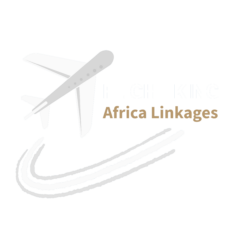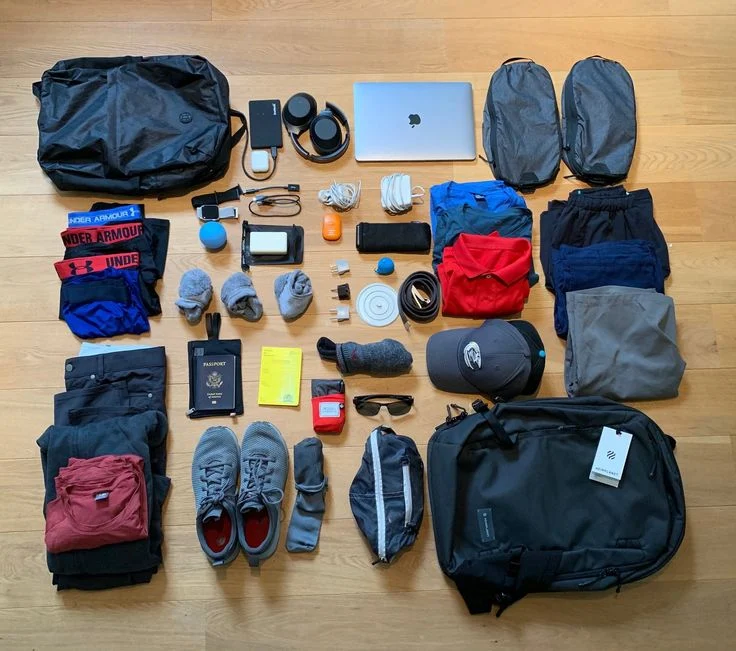Ultimate Packing Guide for Uganda Safari Travelers
Everything you need for a safe, comfortable, and unforgettable trip
Understanding Uganda’s Travel Conditions
Uganda’s climate is tropical, with warm days (25–30°C), cool evenings, and occasional rain — especially during March–May and October–November. Depending on your itinerary, you may be in lowland savannahs, rainforest, or mountainous areas — so you need to pack for variety.
Clothing: Layered, Lightweight, Safari-Friendly
Wear breathable, comfortable, and functional clothing. Neutral colors (khaki, olive, beige) are best for game drives — they don’t attract insects or alarm animals.
✔️ Essential Clothing Items
| Item | Quantity | Notes |
|---|---|---|
| Long-sleeved shirts | 2–3 | Lightweight, for sun & insect protection |
| T-shirts | 2–4 | Neutral colors; moisture-wicking fabrics ideal |
| Lightweight trousers | 2–3 | Avoid jeans; choose quick-dry materials |
| Shorts or safari skirts | 1–2 | Useful in hot lowland areas |
| Fleece or jacket | 1 | Morning & evening game drives can be chilly |
| Waterproof rain jacket | 1 | Especially for rainy seasons or Bwindi |
| Comfortable walking shoes | 1 pair | Waterproof hiking shoes if trekking |
| Flip-flops/sandals | 1 pair | For lodge wear or showers |
| Undergarments & socks | Enough for full trip or laundry interval | |
| Sleepwear | 1–2 | Comfortable for varying temps |
| Swimsuit | 1 | Some lodges have pools or hot springs |
| Sunhat/cap | 1 | Wide-brimmed hat recommended |
| Sunglasses | 1 | Polarized lenses protect from glare |
Health & Hygiene Supplies
Uganda is a tropical country, so good hygiene and protection from insects are important.
✔️ Toiletries & Health Items
Toothbrush, toothpaste, floss
Shampoo/conditioner (travel-sized)
Deodorant
Biodegradable soap or body wash
Sunscreen (SPF 30 or higher)
Insect repellent (with DEET or Picaridin)
Wet wipes & tissues (especially for long drives)
Hand sanitizer
Lip balm with SPF
Moisturizer or aloe for sunburn relief
Razor/shaving gear
Sanitary products (pads/tampons – not widely available in rural areas)
Travel towel (quick-dry)
Medical & Safety Kit
Uganda is safe for tourists, but having a basic medical kit is highly recommended.
✔️ Health Essentials
Yellow Fever Certificate (required for entry)
Malaria medication (consult your doctor before travel)
Motion sickness tablets (roads can be rough)
Pain relievers (e.g., paracetamol, ibuprofen)
Antihistamines (for allergies or bites)
Anti-diarrheal (e.g., Imodium)
Antiseptic cream & plasters
Personal prescription meds (carry in original packaging)
Electrolyte tablets (for hydration)
Documents & Travel Essentials
Keep important documents in a waterproof travel wallet or organizer pouch, and carry printed and digital copies.
✔️ Must-Have Documents
Passport (valid for at least 6 months)
Uganda e-Visa Approval Letter
Yellow Fever Vaccination Certificate
Return/onward flight tickets
Travel insurance certificate (with emergency cover)
FlightKing Tours safari itinerary
Hotel/lodge confirmations
Driver’s license/international permit (if self-driving)
Copies of all documents (paper & digital)
Safari & Adventure Gear
Uganda offers some of the most exciting game drives, primate trekking, and cultural experiences in East Africa. These items will help you enjoy every moment.
✔️ Safari Equipment
Camera with zoom lens (at least 200mm recommended)
Binoculars (8x or 10x for wildlife viewing)
Power bank (charging may be limited in remote lodges)
Universal travel adapter (Uganda uses 3-pin UK plugs, 240V)
Flashlight or headlamp (for unlit lodge paths)
Dry bag or rain cover for electronics
Reusable water bottle
Small backpack/daypack (for hikes or boat trips)
Gorilla & Chimpanzee Trekking Add-Ons (if part of your itinerary)
Tracking primates through the forest requires extra gear and preparation.
✔️ Special Trekking Gear
Sturdy hiking boots (waterproof, with good grip)
Thick socks (tuck pants into them to prevent insects)
Gloves (gardening gloves help with thick vegetation)
Walking stick (often provided but you may bring your own)
Rain poncho/jacket
Energy snacks (granola bars, trail mix)
Gaiters or long pants (protection from mud, insects)
Camera rain cover or ziplock bags
Money, Tipping & Connectivity
While Uganda has ATMs and mobile payments in cities, many safari areas are cash-preferred.
✔️ Money & Access
USD cash (new notes only, post-2009, clean and undamaged)
Ugandan Shillings (UGX) for local purchases
Credit/Debit Card (Visa more widely accepted than MasterCard)
Money belt or hidden pouch
Tipping budget:
Guides: $10–15 per day
Lodge staff: $5–10 per day
Porters: $5 for gorilla trekking
Extras for Convenience
Notebook or journal (great for recording wildlife sightings)
Travel guidebook or safari field guide
Plastic/ziplock bags (for organizing gear or wet items)
Small sewing kit
Earplugs (some lodges are close to nature — very close!)
Luggage Tips
Use soft-sided duffel bags or backpacks
Domestic flights and safari vehicles often have limited space
Weight limit for internal flights: often 15 kg (33 lbs) per person
Use luggage tags and always pack essentials in your carry-on
Final Words from FlightKing
We always recommend checking your itinerary and asking us directly if you’re unsure about specific packing needs. Your safari may take you from wetlands to mountain forests — so smart, adaptable packing ensures your comfort and safety throughout the trip.
Lorem ipsum dolor sit amet, consectetur adipiscing elit. Ut elit tellus, luctus nec ullamcorper mattis, pulvinar dapibus leo.
Disclaimer FlightKing Tours & Travel is not liable for the loss, theft, or damage of personal belongings during the course of any tour, transfer, or accommodation stay. While we take all reasonable precautions to ensure your safety and comfort, guests are responsible for securing their valuables, including money, passports, electronics, and luggage. We strongly recommend carrying travel insurance that covers personal property and using lodge or hotel safes where available.


Comment (0)